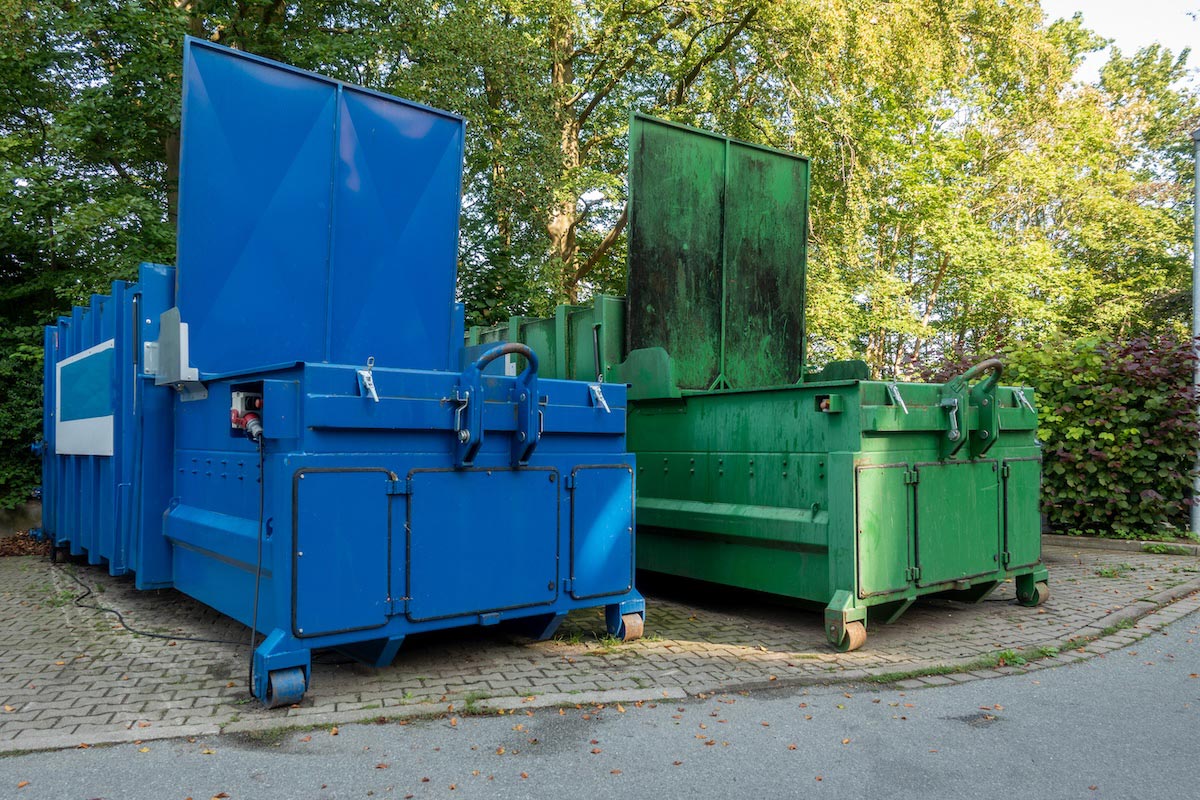What Homeowners Should Know Beyond Property Taxes
Did you know that your property taxes don’t cover one of the most essential services in Toronto—garbage collection fees? Understanding these separate fees can help you better manage your budget. These fees, which are billed separately, play a crucial role in supporting the city’s waste management program.
This guide breaks down everything homeowners need to know about Toronto garbage collection fees in 2025, why these fees exist, how they are calculated, and what services they cover, providing homeowners with a clear understanding of this often-overlooked expense.
What Are Garbage Collection Fees?
Toronto’s garbage collection fees are a separate charge levied on homeowners to cover the costs of managing the city’s waste. These fees are distinct from property taxes and appear on the annual utility bill issued by the city. Homeowners are charged based on their chosen bin size, with larger bins incurring higher costs promoting sustainable waste habits.
These fees fund Toronto’s comprehensive waste management program, which includes:
- Recycling services
- Green bin organics program
- Garbage disposal
By supporting these initiatives, garbage collection fees play a critical role in maintaining a cleaner, greener Toronto while encouraging residents to adopt sustainable waste practices.
Why Aren’t Garbage Collection Fees Included in Property Taxes?
Garbage collection fees operate on a cost recovery model, meaning they are designed to cover the specific expenses associated with waste management services. By separating these fees from property taxes, the city ensures that homeowners pay directly for the waste services they use. By linking fees to bin sizes, the city encourages sustainable practices while keeping these services financially independent from other municipal budgetss funded by property taxes.
Encouraging Waste Reduction
The pricing structure of garbage collection fees incentivizes residents to reduce their waste. Homeowners can choose from various bin sizes (small, medium, large, or extra-large), with larger bins carrying higher fees.
This system encourages the use of recycling and composting programs, as reducing garbage volume leads to lower fees. By making waste reduction a cost-saving measure, the city promotes environmentally responsible behaviour.
Transparency
Separating garbage collection fees from property taxes increases transparency, allowing homeowners to see exactly how much they are paying for waste services. This clarity helps residents understand the true cost of waste management and reinforces the importance of using recycling and organics programs effectively. It also enables the city to adjust fees more easily in response to changing waste management needs without affecting property tax rates.
How Are Garbage Collection Fees Calculated?
Toronto’s garbage collection fees are determined by the size of the garbage bin selected by homeowners, encouraging residents to minimize waste and make use of the city’s recycling and organics programs. Here’s how the fees are structured and what factors influence the total cost.
Bin Size Options
Homeowners can choose from four garbage bin sizes in Toronto, with each size incurring a different annual fee:
- Small Bin (75 litres): $306.36 per year. Ideal for households that produce minimal garbage, typically for those who maximize recycling and composting efforts.
- Medium Bin (120 litres): $371.91 per year. A balanced option for average-sized households managing their waste efficiently.
- Large Bin (240 litres): $505.12 per year. Suitable for larger households that generate more waste but still want to minimize their environmental impact.
- Extra-Large Bin (360 litres): $585.89 per year. Designed for households with significant waste needs, though this comes with the highest annual fee. (Source: https://www.toronto.ca/news/toronto-city-council-approves-2025-rates-for-waste-and-water/)
This tiered system encourages residents to adopt environmentally conscious habits, such as recycling and using green bins for organic waste, to avoid unnecessary fees.
Rebates and Discounts
Toronto offers financial relief for eligible residents to ensure waste management services remain accessible:
- Low-Income Households: Qualifying residents may apply for a rebate that reduces the cost of their garbage collection fees.
- Senior Discounts: Seniors with low incomes may also qualify for additional assistance, further easing the financial burden.
What Services Do Garbage Collection Fees Cover?
Toronto’s garbage collection fees fund a range of essential waste management services that help maintain a clean and environmentally friendly city. These services extend beyond regular garbage pickup to include recycling, organics collection, and specialized waste disposal options. Here’s a breakdown of what homeowners can expect.
Regular Garbage Pickup
- Frequency of Service: Garbage is collected every two weeks, providing a reliable schedule for homeowners to dispose of non-recyclable waste.
- Volume Limits: The amount of garbage collected is determined by the bin size selected by the homeowner. Any excess garbage outside of the bin may require additional bag tags, which incur extra fees.
Recycling and Green Bin Collection
- Recycling Services: Weekly collection of blue bins for recyclable materials, such as paper, cardboard, glass, plastics, and metals. Recycling reduces the amount of waste sent to landfills and contributes to the production of new materials from reused resources.
- Green Bin Organics Program: Weekly collection of green bins for food scraps, yard trimmings, and other organic waste. Organic waste is processed into compost, which can be used in gardening and landscaping, further reducing landfill contributions.
Special Services
Toronto’s garbage collection fees also cover access to specialized waste management services:
- Yard Waste Collection: Seasonal pickup of leaves, branches, and garden waste. This service ensures organic yard materials are composted instead of being sent to landfill.
- Electronics Recycling: Drop-off locations for items like old computers, TVs, and other electronics to prevent harmful materials from entering landfills.
- Hazardous Waste Disposal: Safe collection and processing of hazardous materials such as paint, batteries, and chemicals through designated drop-off facilities.
What’s Not Included in Garbage Collection Fees?
While Toronto’s garbage collection fees cover a wide range of essential waste management services, there are some items and services that fall outside their scope. Homeowners should be aware of these exclusions to avoid unexpected costs and arrange for appropriate disposal when needed.
Bulk Item Pickup
- What’s Excluded: Large items like furniture, mattresses, appliances, and other oversized household items are not covered by standard garbage collection fees.
- Additional Fees: Homeowners can schedule bulk item pickups through the city, but these services typically involve extra charges based on the type and quantity of items.
- Examples: Disposing of a sofa, refrigerator, or old mattress requires pre-arranging a pickup and paying a fee, or alternatively, transporting the items to a designated drop-off location.
Construction and Renovation Waste
- What’s Excluded: Waste from home renovations, such as drywall, lumber, bricks, and tiles, is not collected as part of regular garbage services.
- Private Disposal Services: Homeowners must hire private waste removal companies to handle construction debris. These companies provide services like bin rentals or direct haul-away options for renovation waste.
- Examples: Materials left over from a kitchen remodel or flooring replacement need specialized disposal services to comply with city regulations.
Private Garbage Removal
- What’s Excluded: Garbage collection fees do not cover waste removal for multi-residential buildings like condos, apartments, or commercial properties.
- Alternative Arrangements: Property managers or owners of these buildings are required to contract private waste collection services to manage garbage, recycling, and organics.
- Examples: A condo corporation typically includes waste removal as part of maintenance fees, but it’s handled separately from the city’s municipal waste program.
Understanding what’s not included in Toronto’s garbage collection fees allows homeowners to plan accordingly for specialized waste needs. By knowing when additional fees or private services are required, residents can ensure proper disposal while avoiding fines or
How Toronto’s Garbage Fees Compare to Other Cities
Toronto’s garbage collection fees are distinct in how they are structured and managed compared to other cities in Ontario. These differences highlight variations in funding models and the level of services provided, giving homeowners a broader perspective on Toronto waste management costs.
Comparison with Other Ontario Cities
- Mississauga: Garbage collection in Mississauga is included in property taxes, meaning there are no separate fees for waste management. However, this bundled approach may reduce cost transparency for residents.
- Brampton: Similar to Mississauga, garbage collection is covered under property taxes. This model offers simplicity but does not incentivize waste reduction through a pay-for-use system.
- Ottawa: In Ottawa, garbage collection fees are charged as part of a separate utility bill, much like Toronto. However, Ottawa’s fees are often lower, reflecting differences in service levels and waste management costs.
Key Differences in Funding Models
- Toronto’s Model: By separating garbage collection fees from property taxes, Toronto adopts a cost-recovery approach, ensuring that the fees directly fund waste services. This model also promotes transparency and encourages waste reduction through tiered pricing based on bin sizes.
- Other Cities: Cities like Mississauga and Brampton use property taxes to fund garbage collection, making it less clear how much residents are specifically paying for waste services. This model does not include financial incentives to reduce waste or choose smaller bins.
Tips for Managing Garbage Collection Costs
While garbage collection fees are an unavoidable part of homeownership in Toronto, there are several strategies homeowners can use to minimize costs. By making smart choices, residents can save money and contribute to a cleaner environment.
Choose the Right Bin Size
- Downsizing for Savings: Opt for the smallest bin that meets your household’s needs. Smaller bins have lower fees, making them a cost-effective choice for households that generate minimal garbage.
- Evaluate Your Waste Habits: Regularly assess your garbage output. If you consistently have space left in your bin, consider downsizing to save on fees.
Maximize Recycling and Composting
- Use Green and Blue Bins Effectively: Divert as much waste as possible into the city’s recycling and organics programs. Food scraps, yard waste, and recyclable materials can significantly reduce the volume of garbage going into your main bin.
- Sort Waste Correctly: Ensure that items are placed in the appropriate bins to avoid contamination, which can lead to fines or rejected collection.
Use City Rebates
- Senior Discounts: Eligible seniors can apply for a rebate on garbage collection fees, helping to reduce the financial burden.
- Low-Income Assistance: Households that meet the city’s low-income criteria can access discounts or rebates, ensuring essential services remain affordable.
- Apply Early: Be proactive in applying for these programs to ensure you receive the benefits for the current billing period.
Managing Property Costs with Confidence
Toronto’s garbage collection fees are more than just another expense—they play a vital role in supporting the city’s waste management and sustainability goals. By funding essential services like garbage pickup, recycling, and green bin collection, these fees ensure that Toronto remains a clean and environmentally conscious city.
For homeowners, understanding how these fees work can make a significant difference in managing their overall property expenses. By choosing the right bin size, maximizing recycling, and exploring rebate options, residents can minimize costs while contributing to a greener future.Need help managing your property costs in Toronto? Justo offers expert insights and personalized advice to help you navigate municipal fees and real estate expenses. Contact Justo today for expert guidance and practical tips to make to make homeownership as smooth and affordable as possible.
- The Impact of Interest Rate Cuts on Toronto’s Housing Affordability - April 23, 2025
- Bank of Canada Holds Interest Rate Steady Amid Tariff Uncertainty - April 19, 2025
- The Impact of Interest Rate Cuts on Toronto’s Housing Affordability - April 11, 2025




